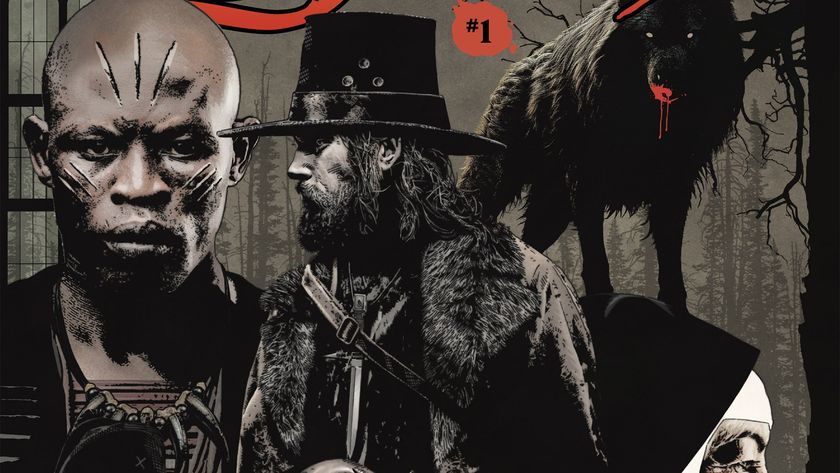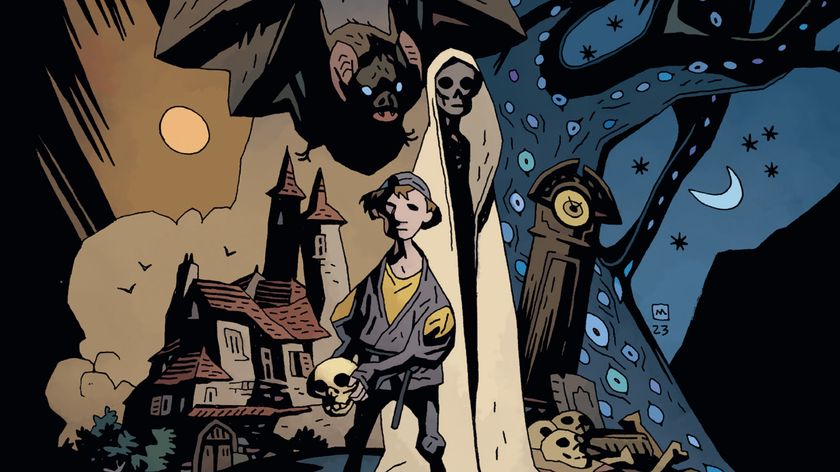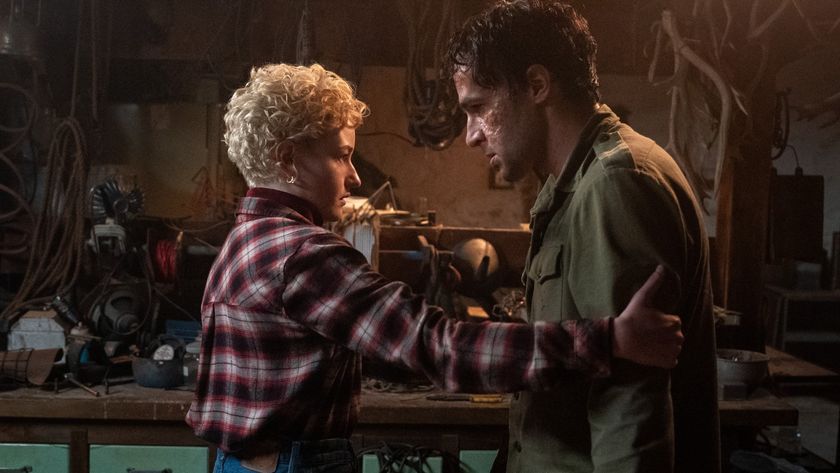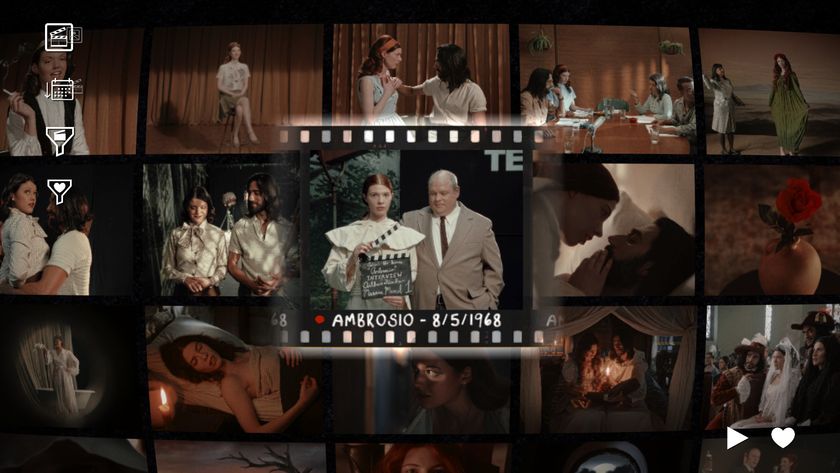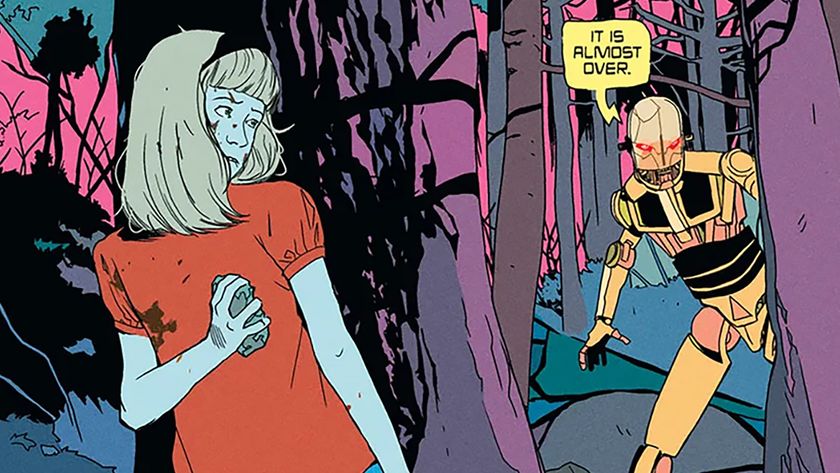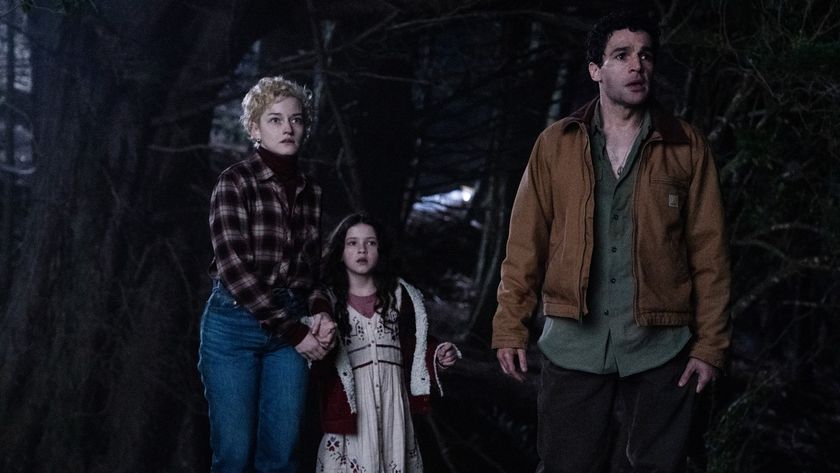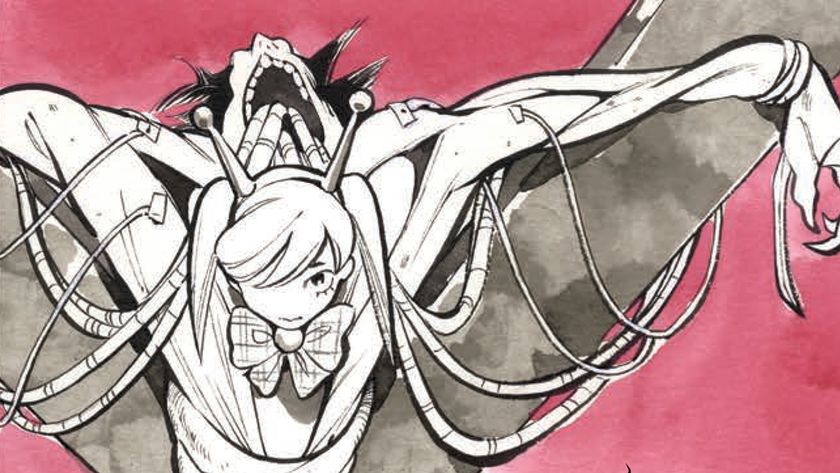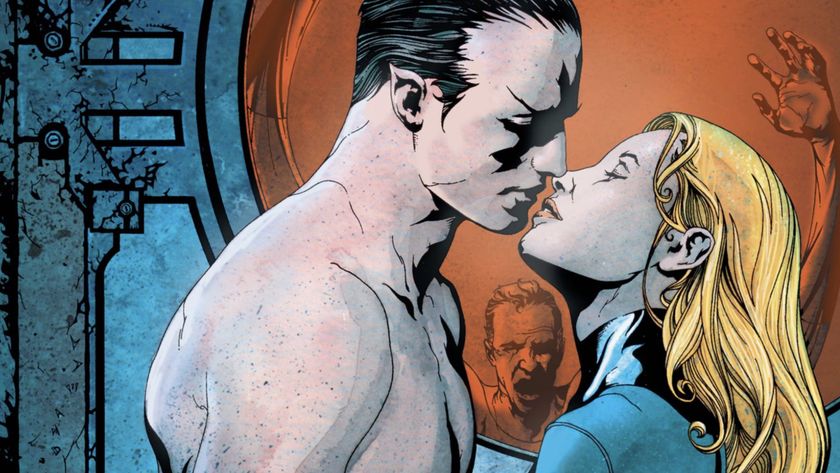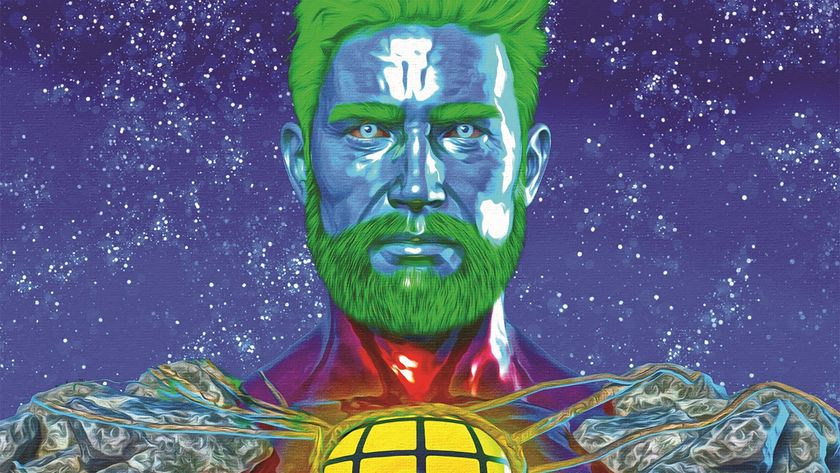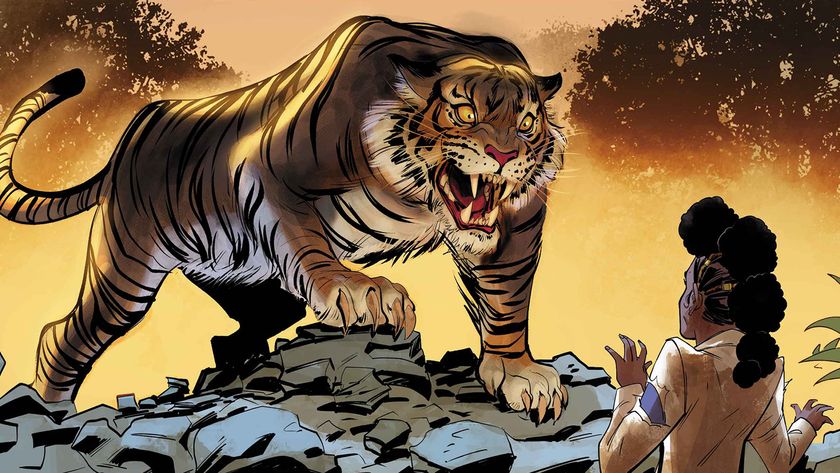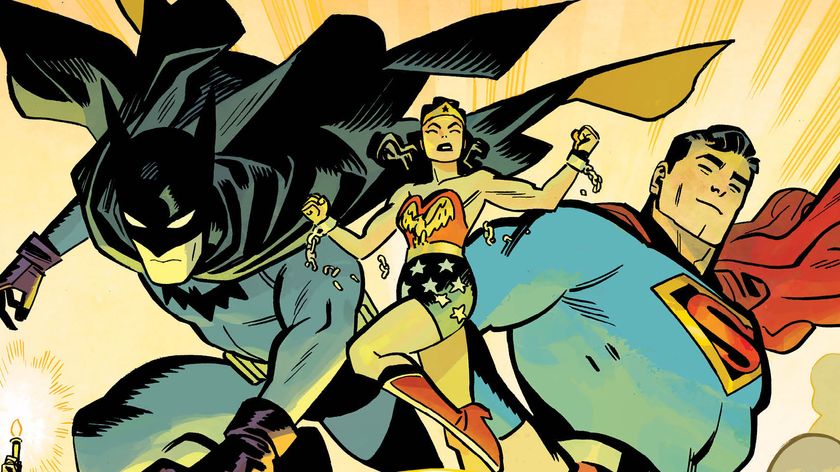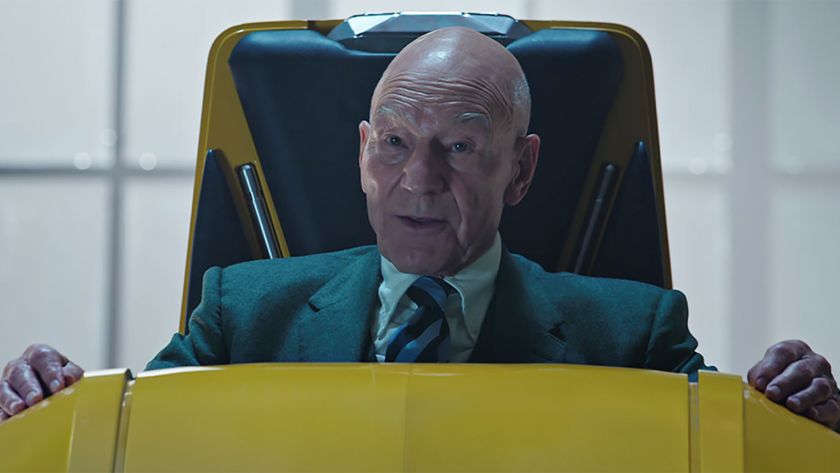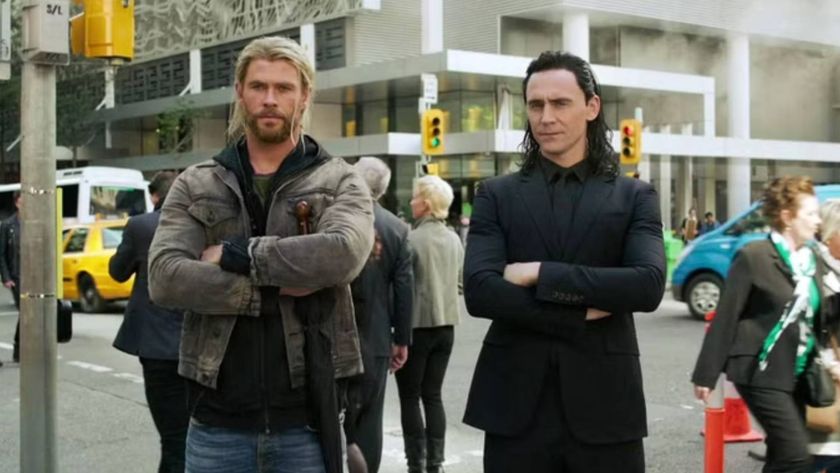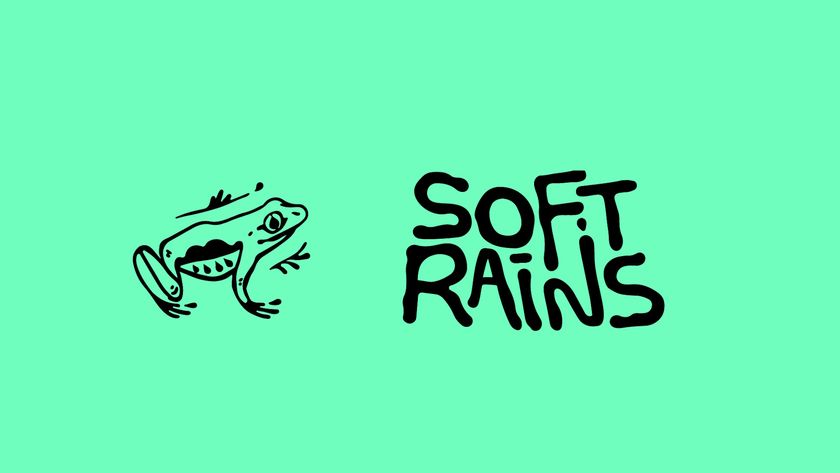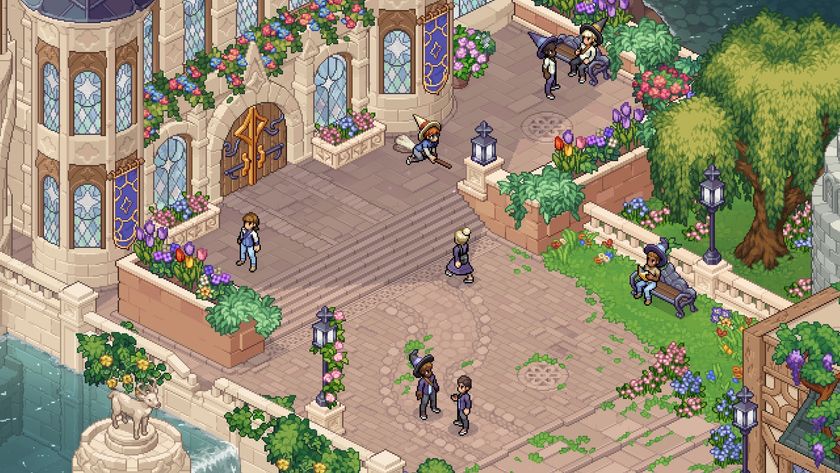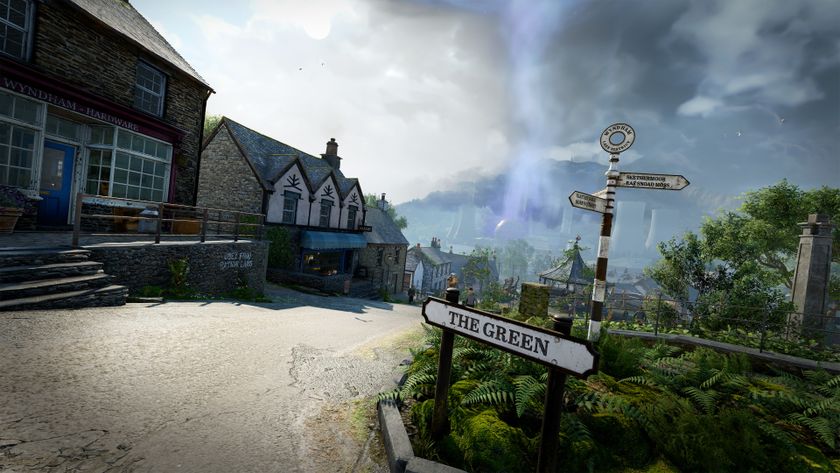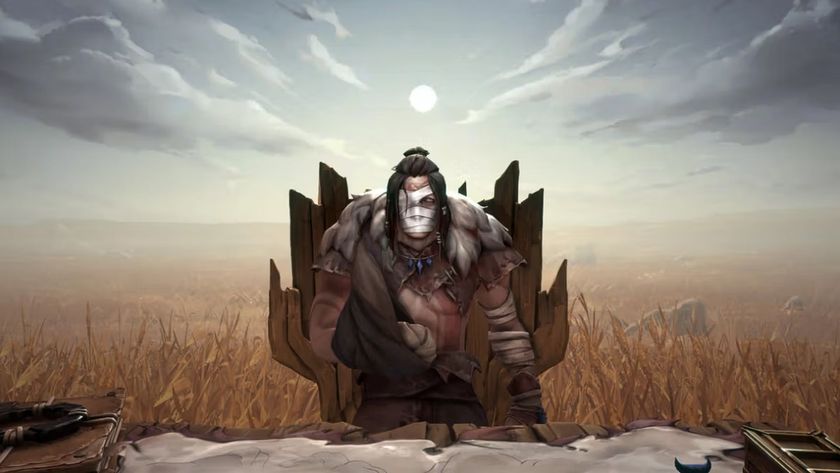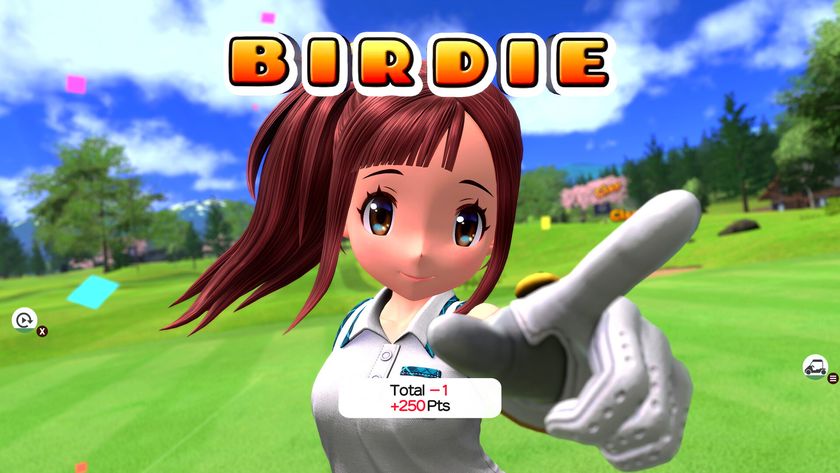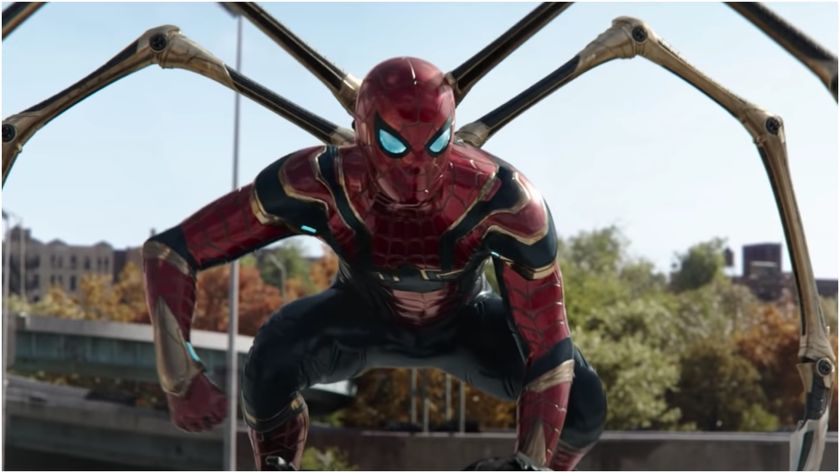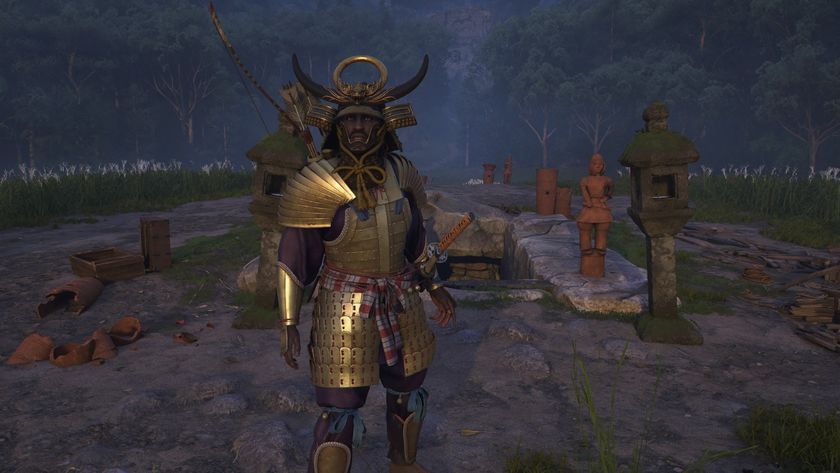Punisher actor Thomas Jane returns to comics with The Lycan, a horror love story he’s been waiting over 10 years to tell: "It's sexy, and it moves"
Interview | Thomas Jane talks about co-creating his historical horror story The Lycan, and why werewolves are such perfect monsters
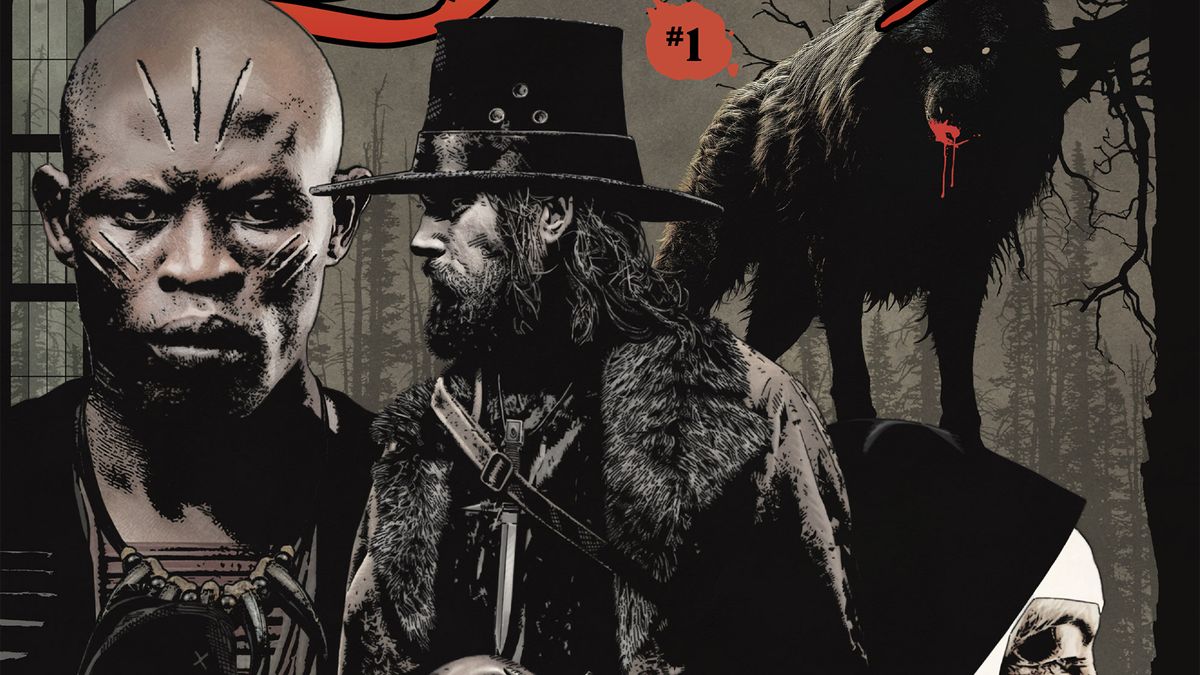
Werewolves are the most primal horror monsters, representing the idea of the unleashed beast within, offering a sense of feral seduction and primal energy that stands apart from vampires and other similar creatures of the night.
It's that primal energy that The Lycan, a new historical horror comic from ComiXology Originals, aims to tap into, presenting a tale of wild hunters coming into contact with a pack of raging werewolves in the 18th century.
Co-created by producer David James Kelly and none other than famed actor Thomas Jane, no stranger to working in comics with multiple titles under his belt, The Lycan is written by comic writer Mike Carey with art by Diego Yapur and colorist DC Alonso who bring to life a tale of werewolf horror tinged with an unlikely historical romance.
Newsarama spoke with Jane ahead of the release of The Lycan #1, which went on sale February 18, digging into the differences between making movies and making comics, the lessons he's learned from his previous comics work, and exactly why werewolves are so intriguing and terrifying.
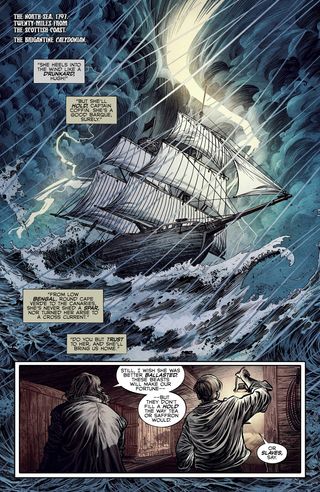
Newsarama: Thanks for taking the time to speak with me today Thomas. I got to read the first issue of The Lycan, and I thought it was great. I'm a bit of a history buff as well as being into comics and horror, so it's right in my wheelhouse. How did you and David James Kelly develop this concept, and how did it wind up at ComiXology Originals?
Thomas Jane: We're fans of Brotherhood of the Wolf, a terrific French film. The cinematography in that thing is terrific. If anybody hasn't seen it, watch it. But I was disappointed in the movie because there are no actual werewolves in it, so David and I thought, you know, let's do something like Brotherhood of the Wolf, but with the werewolves.
Pretty simple concept, but also the werewolf genre is something that I've always been a big fan of. But man, the movies are few and far between. And we actually conceived of this as a graphic novel, but wanted to compress the story as if it was a film. You know what? It was The Howling. When I was a kid, I saw The Howling in the movie theater and it just blew my mind. And I guess that kicked off my love affair with the werewolf genre.
Comic deals, prizes and latest news
Get the best comic news, insights, opinions, analysis and more!
The Lycan ended up at ComiXology because my new company, Renegade, where I'm partners with [producer and actor] Courtney Lauren Penn, we've had some good success. We produce a show for Amazon called Troppo, which I direct, and produce, and star in. And it did really well. It was in the top ten on Amazon for weeks.
Congratulations on that.
Courtney said, you know, we should really try to find a good graphic novel. And I had tried to do The Lycan over 10 years ago, and had a great script by Mike Carey, and I dug that out. I was heartbroken because we got a couple issues in, and then I lost my artist, so it sat in a drawer, but enough time had gone by that I felt like I could dust it off, and we sent it to ComiXology, and they loved it.
There's a lot to love.
Mike wrote an absolutely fantastic script, and I love his historical dialogue, you know? It's sexy and it moves, and it's condensed, but he captures the rhythm of a different time. And so he was able to bring the story to life in really just a perfect way. So I'm excited for folks to check it out.
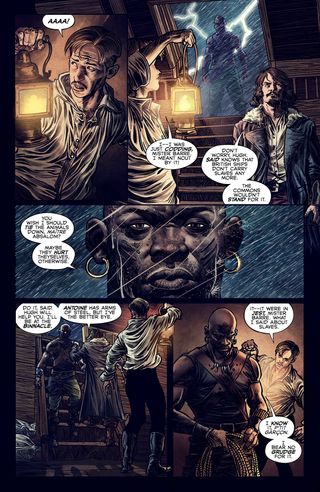
You know, you mentioned that werewolves don't get a whole lot of love. It feels like there's vampires everywhere, but what is it about werewolves as kind of the other big monster archetype, that is so interesting and so special to you, as opposed to any other type of horror creature?
Well, I mean, it's your primal connection with the beast inside of all of us. I've always been interested in Jungian psychology. You know, as an actor, I guess, all actors are into some sort of Jungian archetypes and stuff like that. And there really is no better instantiation of the beast than the werewolf story. You know, the lore that's grown up around it, I feel is a little old fashioned, with the silver bullets. And so, you know, we do a little bit of that, but we also put our own twist on it.
And the other thing I love about The Lycan is that, ultimately, it's a love story. You know, it's this sort of like Forbidden Love, lost love. And it deals with three factions colliding and intersecting with each other, sort of three opposites, in a way.
You've got this band of hunters, which is led by this man named Coffin, and they're big game hunters. This is set in 1797, right? So they have a ship, and they go to Africa, and they'll catch and kill big game and bring it back to the UK to sell to dukes and lords. But they're like the wild child of the period. They're their own bosses, they do their own thing. They're highly skilled, and they're all for one and one for all.
And then you've got the Red Coats they encounter. They kind of get shipwrecked on this little British isle where there's one castle at the top of the top of a mountain, and inside the castle, the Red Coats have sort of taken over, because they have this wolf problem. And the before the Red Coats came to the castle, which was originally a fort, it was taken over by these nuns, and the nuns were living there for, you know, a long time. But the Red Coats move in, and so we've got the tension between the nuns, and the Red Coats, and our band of merry hunters, who aren't so merry, but they're but they're pretty deadly.
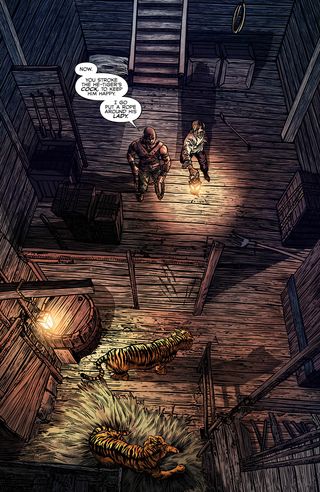
You've done comics before, such as Bad Planet, and Alien Pig Farm 3000, among others. What are the lessons that you're bringing forward from those previous comics experiences to help shape this story?
Well, you know what? It's an art form, right? It's a craft, and the only way to learn a craft is to start doing it. I also did a graphic novel with Thomas Ott and Tab Murphy called Dark Country, which is fantastic. I love Thomas Ott. But getting your hands dirty and learning how to tell a story economically, you know, you got 22 pages mostly. Most comic books are 22 pages long, and you have to cram character and story into those 22 pages. And there's a certain episodic nature to a series, and the craft of being economical and visually interesting is the name of the game, with comics. And you can always find simpler ways to get the information across in a striking way. So that's what's fascinating to me about the comics.
You know, I have been a fan since I was eight years old. My mother was an antique collector, and she was also a dealer for a little bit, but we were always going to auctions and antique houses. And as a kid, this is just about the most boring thing you could ever do.
My mom is also an antiques collector and dealer, so I know all about that.
So you know, yeah, it's just deadly hanging out. And then the auctions, and the sawdust on the floor… I mean, this was, you know, the '70s in Maryland, so she found a lot of great stuff. And our house looked fantastic because it was all antique. There was not one piece of modern furniture in the entire house. And she's still that way today. It's beautiful.
But I would eventually find that cardboard box that's full of comics, you know. And you know about 50/50, you had a chance of going to a place and finding a box of old comic books. And that's how I discovered comics. I actually found a copy of Corn Fed Comics, which is an underground comic by Kim Deitch, who's still around, I think, and doing better than ever.
You know, if anybody wants to check out Kim Deitch, he did Corn Fed Comics, and it blew my mind, because it was, you know, the polar opposite of anything done by Marvel or, you know, DC. And it was just like this weird glimpse into somebody's sort of twisted imagination. And I was like, whoa. Now, what are we dealing with here? And that really kind of set me off.
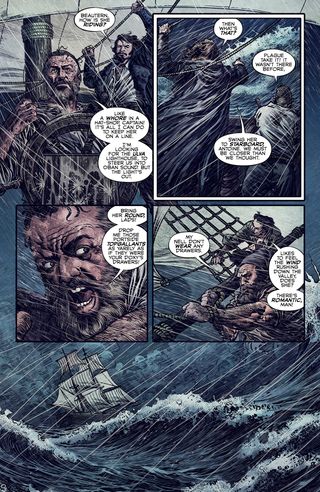
Along with being the co-creator of the concept, you're also credited as being the editor of The Lycan. What's it like wearing that hat in particular in the context of a comic, and what has that meant for your role in creating it?
Well, I mean, the editor just kind of goes through and makes sure that everything's in the right spot, and then figures out how to, again, condense and be economical in the way that you're telling the story, so that we have the script, and then we we get it all drawn, and then you've got to proofread the damn thing and make sure that it's translating.
And what I'll do is go through and change some of the dialogue or rearrange the panels to try to make it flow better, right? Somebody has to have eyes on this thing as the last person that's going to be able to make changes before it goes to print. So that's the job of the editor, as I see it, as I'm doing it, you know. And that'll give me a last ditch opportunity to be able to try to make things more clear, to streamline some stuff, to add a little bit, you know, if I can find dialogue, a line of humor in a place, I'll be like, let's lighten it up right here for a moment. That's my editorial capacity on this thing.
You're working with artist Diego Yapur and colorist DC Alonso on the art for The Lycan, which is so striking. I was immediately taken aback by how good it looks.
That's good to hear, you know, because I'm a very visual person, and I have high standards when it comes to art. And as the guy who's making the book, I play the role of a director in a film, right? So I've got to hire the people that are going to tell this story in the best way that we can and work with them, and, you know, try to guide the layout process with Diego, right?
So he'll do a bunch of sketches and lay the book out and say, "This is kind of what I'm thinking." And I'll be like, "No, we have to zoom in on this. This is an important moment."
So that's the job that I have as the director of the comic book, you know. And I learn so much, it's like a feedback loop. I think Francis Ford Coppola said something similar. Somebody said "Where do you get your inspiration for all these cool shots?" and Coppola said, "Comic books." And that's so true.
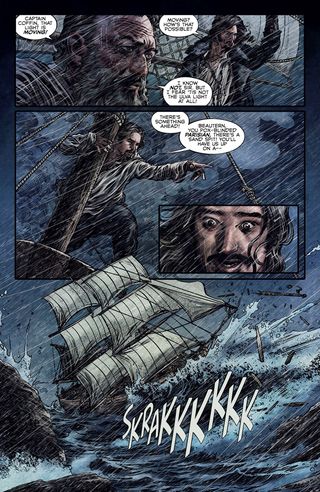
Speaking of art, you've got Tim Bradstreet doing the covers. He's one of the definitive Punisher artists, which is obviously a pretty fun connection for you having starred in 2004's Punisher film. How did Tim come on board? And I mean, obviously that's just having a little fun with your fans, while also hiring a great artist, right?
Yeah, exactly. And I have been pals with Bradstreet since the very beginning. You know, we met because Bradstreet was going to do a cover of the sort of movie adaptation comic for Marvel. So they hired Bradstreet, and so I had to go down to his studio, because he works with photos, and so he had to take a bunch of pictures of me. And that's how we met. We hit it off, and we have become pals ever since.
Timmy is a comic book legend, you know, and his work is better than ever. So that was a no brainer. I also have Liam Sharpe another doing a cover for us, too. And I just saw that the other week, and it's absolutely gorgeous. So I'm excited. I'm excited for folks to check this out, you know? And I also did a double cover. When we do the print version, there's going to be three double issues with wraparound covers. So that's been fun. I've never done that before. You know, working with the artist is really the most rewarding thing about doing these books.
You've got an extensive film career that includes sci-fi, comic book movies, and all kinds of genre-oriented roles. How has your experience as an actor in those kinds of stories informed the approach you have to being a comic book creator?
Well, you know, we're fans of genre over here. My company Renegade, I like to think of it as an elevated genre company. And genre includes westerns. We've done a few of those. Crime, which is Troppo, and science fiction and horror, because that's really what I love. But finding good sci-fi and horror scripts is insanely difficult. Genre is something that's just been done to death, so finding a new way to tell old stories is really what it's all about.
And for me, creating characters that matter. Fully fleshed out human beings. I think that's why Stephen King is so damn popular, because he's able to really give you a sense of who these people are that he's writing about. Not only that, he tells a rip roaring yarn, but what makes King's work last is his ability to excavate the characters. So that is the goal all the time.
When you think of genre, you know, you're often just thinking about the blood and then the guts and the special effects and the aliens and stuff like that, but none of that really means anything unless you're able to fully flesh out the characters and make them matter and stick with you.
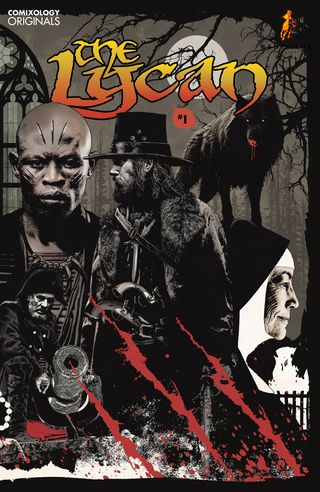
I want to ask you about working with Mike Carey. I know he was very instrumental in bringing the story to the page. What was it like working with him as a writer, to make The Lycan the version of the story we see on the page now?
Well it's really me and David James Kelly who had the original outline for the story. I worked with him on the outline, and we batted that back and forth a bunch of times. And again, I was acting more as a director and producer on the story. You know, cut this, add that, bring this more to the surface. Don't do that and that.
But when it comes to working with Mike, you don't need to do any of that. You just let him go. And I got lucky, because Mike almost never adapts anything. His stuff is always original. And somehow, I asked him, and he just so happened to have a gap in his schedule. And he liked the story. He says he had a blast because we didn't really flesh out the characters in our outline, it was all plot. You know, here's the story, here's where we are, here's when we are.
But Mike, what he brought to the party was bringing these characters to full-bodied life and making them fun, and adding his own sort of twists and ideas. As far as our plot goes, he stayed within the bounds, but he was able to push certain things and pull back on certain things. And getting his instincts into the story is really why we have a comic book, you know? If it weren't for Mike, this would have just been another fun outline sitting in my drawer. It's all Mike, man. And so I'm hoping that fans of Mike are going to get a treat, and I'm also hoping to turn people on to Mike Carey's work.
What does it mean for you to be coming back to comics with The Lycan, and to finally have this story out in the world after working on it for years?
Well, I'm very excited. You know, the perfect story is always in your head. Bringing it to life, it's, it's always going to change, and that's part of the fun of the collaborative process. And that's very true with film as well. You know, you hire the best artists that you can for that particular story and then let them do their thing, and then in that process, your story will change. And if you're fortunate, it's going to be better than what it was before. So The Lycan is the best version of the story that we've ever had, and so I'm excited to share it with everybody.
It's a perfect time to dig into the list of the best horror comics of all time.
I've been Newsarama's resident Marvel Comics expert and general comic book historian since 2011. I've also been the on-site reporter at most major comic conventions such as Comic-Con International: San Diego, New York Comic Con, and C2E2. Outside of comic journalism, I am the artist of many weird pictures, and the guitarist of many heavy riffs. (They/Them)
